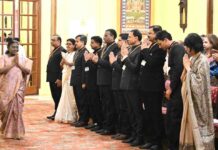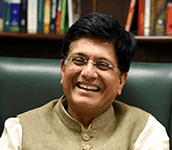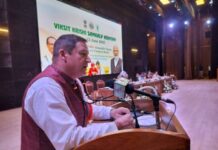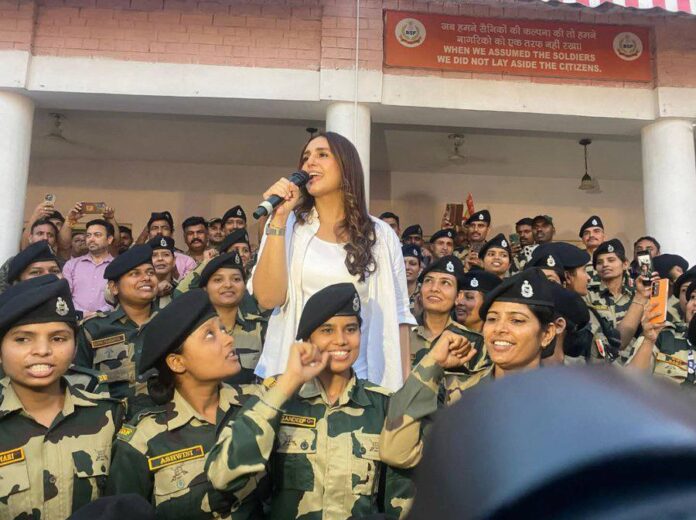May 29: In a time when Jammu and Kashmir continues to grapple with the echoes of conflict and the lingering fear from recent cross-border hostilities, a different voice has emerged from the border town of Suchetgarh—one that speaks not in the language of politics or strategy, but of healing, hope, and harmony. Actor Huma Qureshi’s visit to the Octroi Post, a site symbolic of India’s vigil and sacrifice, was more than just a celebrity appearance—it was a poignant appeal to reclaim the narrative of the region from the grip of hate and division.
Standing amidst the echo of marching boots and the emotion-charged ambience of a border retreat ceremony, Qureshi’s words were simple but powerful: “Please don’t let hate win.” It was a call that transcended the barbed wires of physical boundaries, addressing the deeper, more dangerous divides of fear and prejudice. Her presence at the post-Operation Sindoor cultural event organized by the Jammu and Kashmir Tourism Department, in collaboration with the BSF, signaled the beginning of what could be a new chapter in the people-to-people conversation about Kashmir.
Her emotional connection to the region—through her mother’s roots—and her interaction with the brave jawans, especially the women troopers, added a layer of authenticity to her message. These are women who, day and night, keep watch over the borders, standing as silent sentinels of peace. Recognizing them not only highlights their uncelebrated heroism but also encourages young Indians to see Kashmir not just as a flashpoint, but as a living, breathing homeland of stories, culture, and strength.
Huma’s voice is particularly relevant following Operation Sindoor, a massive coordinated response by Indian forces to counter Pakistan-sponsored shelling and drone infiltration. While the security response has been firm and necessary, what follows must be equally robust—a cultural and emotional outreach. In that sense, her message for people to visit places like Vaishno Devi, Patni Top, and Bhaderwah is both an endorsement of domestic tourism and a deeper invitation to witness the resilience of a land that refuses to be defined by conflict alone.
In a country where cinema often influences minds more deeply than manifestos, voices like Qureshi’s hold a rare power. Her editorial-worthy intervention at the border speaks volumes: India’s unity is its most powerful weapon—and its most enduring hope.



















